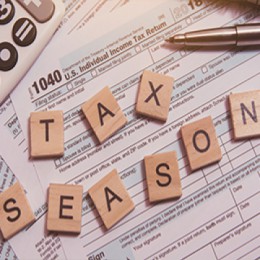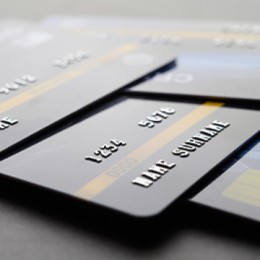
Want to learn about some of the most common financial pitfalls we see here at the credit union? Check out our CSE Couch Chat episode on this topic, or continue reading below!
Have you been struggling financially? If you answered yes, you’re not alone; if you want to work towards winning that battle, we’re here to help. While it may be hard, it’s very important to take a good, long look at your overall financial picture to know what mistakes you may be encountering that could be causing you financial suffering.
If you’re unsure of what to look for, to shed some light, we’ve compiled a list of common pitfalls and mistakes that people make. Even if you’re in a good place with your finances, it’s still a good idea to be aware of these common financial snags so you don’t also fall into any bad habits.
Here are our top 6 common pitfalls that we see members experiencing:
1. Excessive Spending or Blind Spending
Sometimes, what you think is a little spending here and there, actually adds up to a pretty large sum of money. For example, you might not think that a-coffee-a-day is a lot of money, but it adds up. If you’re spending, on average, $5 each workday for coffee, in one month’s time, that’s about $100, or $1,200 for the year! The same goes with ordering out food in the fast lane or with a delivery service. Another common way to overspend is with something we call blind spending or having a card saved on your favorite retailer site and just clicking ‘buy now’ without really thinking about it or watching it all add up since you buy one or two things at a time.
If you're enduring financial hardship, avoiding excessive or blind spending could make all the difference in curbing your spending habits. This simple step could save you a lot of money and frustration.
2. Not Having a Budget in Place or Having Any Plan Period
Do you spend countless hours watching TV or scrolling through social media? Why not take even a fraction of that time - even two hours a month, to take a look at your budget, specifically, where you’re spending your money. It could make a huge impact on your finances. In order to reach financial goals and be financially successful, you need to know where you are going and you can do that by becoming aware of your finances and creating a plan.
Many members simply spend money they see they have available in their account or on their credit card, take out loans when they need some extra funds, and then make payments, but this cycle is simply survival mode, getting by for your ‘right now’.
Putting together a budget might seem like a difficult task, but you’re not alone! First, we like to mention that it doesn’t have to be a complicated endeavor. Second, we like to remind members that we are here to help! Starting a budget can be as simple as collecting receipts for a whole month, just so you know where you’re spending your money. From there, you take a look at where you could make some easy adjustments to save more, spend less, and pay off debts. If you’re not sure where to go from there, we have a number of helpful representatives who would be happy to assist you further along your budgeting journey.
3. Excessive Use of Credit Cards or Only Paying the Minimum Payment Amount on Credit Cards
Using credit cards to buy essential, everyday items has become more and more common, whereas before, they were generally used for larger purchases or emergencies.
However, with increased usage, and an overall shift of consumers moving from cash to plastic, many don’t realize how quickly the cost of purchases adds up. PLUS, interest can multiply when you’re not paying your balance off in full.
To make matters worse, consumers who only make minimum payments on credit card balances rather than larger payments or paying off balances can get themselves into dangerous territory rather quickly. It’s important to realize that when you’re borrowing money from a credit card, you have to pay it back, and although there is only a minimum payment you HAVE to make, each time you fail to pay it off this adds more interest to your overall card balance, so you’re not making a dent in paying off your debt. In reality, you will watch that outstanding balance continue to grow, which can get you in some bad financial trouble.
4. Spending Money on Wants before Needs
You have to be real with yourself when it comes to wants and needs. Make a list and write them out. Do you need cable or that music subscription service? Or, is paying more on your credit card balance maybe a little more important than music without ads?
If money is tight, or you want to start saving some money, make some lifestyle decisions that will better suit your finances RIGHT NOW. You can always get back to buying things that you want if you’re financially strict with your wants versus needs when you need it most.
5. Buying Things You Can’t Afford
From buying a brand-new car to spending too much on your home – buying things you can’t afford because you don’t know your true budget is a common pitfall we see! Being able to afford a monthly payment, is not the same as being able to afford the overall vehicle or home. You have to consider things like interest, insurance, maintenance, and having additional money set aside for emergencies.
Think long and hard about making such a big purchase. Do you need such a big vehicle? Do you need those extra bells and whistles? Or, would something used still suit your needs and allow you to keep your finances in check right now? The same goes with housing – remember, bigger in the ‘fancy neighborhood’ doesn’t always mean better. Choose a home to fit your family, your needs, and your budget…not your fantasy lifestyle.
6. Living Paycheck to Paycheck or Not Having an Emergency Savings
Many of our members’ households live paycheck to paycheck, which means the tiniest unforeseen problem or emergency can cause huge financial chaos if you’re not prepared with the right amount of money saved back.
From a sudden illness to not being able to get to work because your car has broken down, to fix the furnace or another appliance that has gone out – these emergencies aren’t always quick, easy fixes…and they’re usually not inexpensive either.
It’s a good idea to keep at least three months’ worth of expenses in an emergency savings account so you can access it whenever disasters arise.
Though these mistakes are common, at CSE we want to help you avoid these mistakes in order to help you find financial freedom. With the help of our certified member financial counselor among other very capable and helpful representatives, we can assist you in creating a plan to change your habits, get out of debt, and reach your goals.
To set yourself on the right path and keep away from these pitfalls, start by monitoring the little expenses and habits that can add up quickly. Next, move on to monitoring the bigger items, such as debt. Think carefully before opening new debts. Remember, make saving a priority, along with keeping up with your budget, and always come back to your financial plan for success.











0 comments